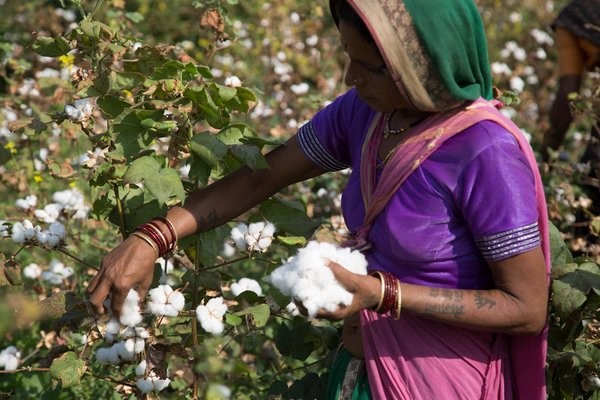Study: Using organic cotton in denim production reduces global warming, improves environmental health

Published: December 7, 2021
Category: Organic News
Organic cotton belongs in your jeans. A study from the EurAsia Waste Management Symposium revealed that substituting organic cotton for convention cotton in denim production improved 11 indicators for global warming, human health, and environmental health.
Pesticides and synthetic fertilizers are the key drivers of the negative impacts from conventional cotton growing. By tracking the Life Cycle Assessment (LCA) of denim fabric from growing the cotton through manufacture and usage until its disposal, researchers were able to measure 11 potential environmental factors. These include abiotic depletion, abiotic depletion fossil fuels, global warming, ozone layer depletion, human toxicity, fresh aquatic ecotoxicity, marine aquatic ecotoxicity, terrestrial ecotoxicity, photochemical oxidation, acidification, and eutrophication.
Using organic cotton reduced all impacts of denim fabric production: global warming potential dropped 21%, fresh aquatic ecotoxicity was reduced by 96%, terrestrial ecotoxicity went down 90%, and photochemical oxidation dropped by 57%.
The absence of pesticides and synthetic fertilizers in organic production positions organic cotton as a highly environmentally protective choice for raw material.
Source: The Organic Center
To view source article, visit:
Organic & Non-GMO Insights December 2021








